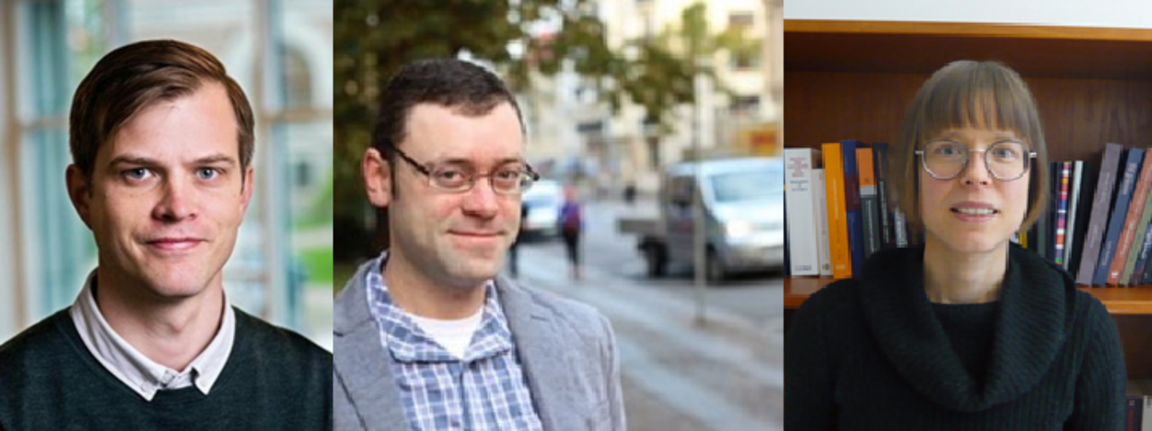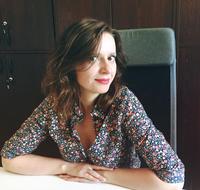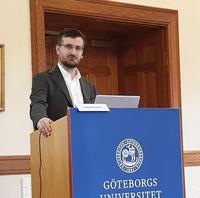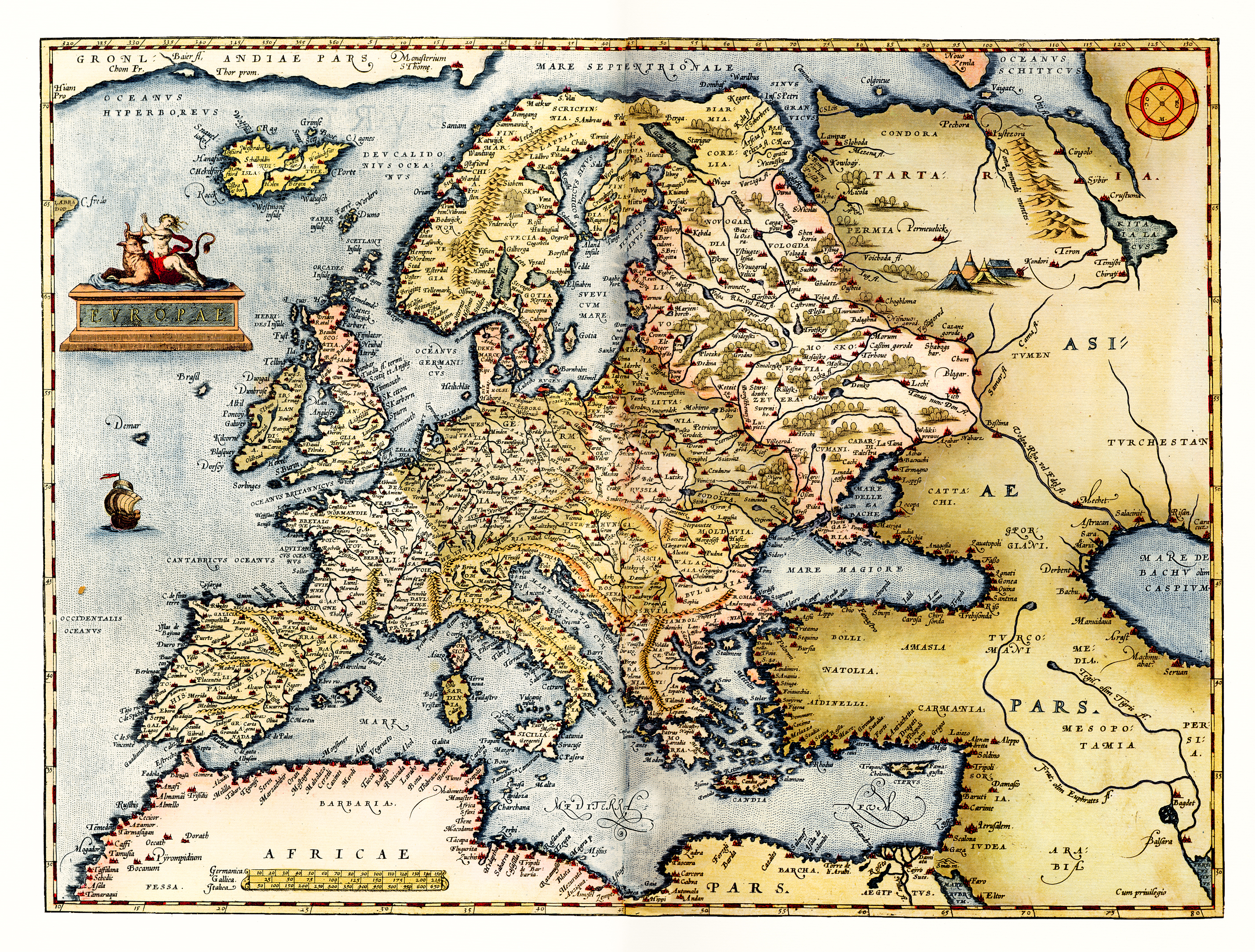Being a CERGU Postdoc
Meet CERGU postdocs and hear about their experiences.
Being a Postdoc in the CERGU Research Environment
Being a postdoc at CERGU entails a double affiliation, in part with your specific subject field, where you are expected to participate in the same way as postdocs and teachers/researchers at your own department. And in part with the multidisciplinary CERGU research environment. Your office and formal employment will be located at your department, but you will be expected to meet and interact with colleagues from the CERGU network every week at Tuesday morning breakfasts, working seminars, workshops and conferences. You will always have access to research support at CERGU, and there are many opportunities for starting new interdisciplinary collaborations, for example, multidisciplary research projects, conferences, publications, and more.

From 2020
Meet Two Postdocs at CERGU
Below you can read what two international postdocs say about their experiences at CERGU.
Katarzyna Wojnicka was a postdoc at CERGU from 2015-2017. She is now employed at the Department of Sociology and Work Science, which she has combined with her two research projects, placed at CERGU.
1. Why did you choose to apply to be a postdoc at CERGU?
When I applied for a postdoc position in 2014 I was working as a project manager in one of the German research institutes in Berlin and had considering coming back to academia, as I simply missed teaching and more advanced academic discussions. I applied for two postdoc positions, got both and eventually decided on CERGU as my research project was strictly European/transnational in character, but also because I felt that in Sweden I would have more freedom to conduct my research just the way I wanted it. And I was totally right.
2. How was your experience at CERGU and in Gothenburg during your time as a postdoc?
It was simply amazing (and still is, as at the end of 2019 I came back to CERGU after some years spent in German and British academia). I met fantastic people, both colleagues and friends, learnt (some) Swedish, had a chance to live in one of the most charming cities in Scandinavia and last, but not least, I have started to value the magical power of FIKA. I also learnt rain is not such a horrible thing after all.
3. What has your postdoc experience at CERGU offered you, and what would you say you have gained from the experience?
I cannot imagine having better opportunities than those given to me by CERGU. First of all, due to a double affiliation, I had the chance to attend seminars organized by CERGU and the Department of Sociology and Work Science, where I was based. At CERGU, due to its European character, I was able to extend my academic horizons, as many seminars went beyond my discipline and allowed me to get familiar with new theories, methodological approaches and new paradigms related to European studies. At the Department of Sociology and Work Science I had the chance to advance my sociological expertise in the areas of my interests as I was able to participate in seminars organized by working groups dealing with gender, migration and social movement issues. Secondly, due to well-known characteristics of Swedish society, namely, working culture based on high levels of collaboration, I attended many seminars where my papers and research proposals were discussed in great detail by colleagues representing different backgrounds. This gave me a chance to receive unique feedback and led to publications of several papers and winning two research grants from the Swedish Research Council. I am strongly convinced that without (a little) help from my colleagues, that might not have been possible. Finally, CERGU is a very supportive research environment. As a postdoc I received significant financial support that allowed me to participate in a number of international conferences organised by influential bodies such the Council for European Research, European Sociological Association, International Sociological Association, to name just a few. More importantly, however, I received a lot of support delivered by CERGU people, from Birgitta, research coordinator, Angie, research administrator, and Linda, former director, among others.
Ettore Costa has been a postdoc at CERGU from 2018-2020 and has his office and employment at the Department of Literature, History of Ideas, and Religion.
1. Why did you choose to apply to be a postdoc at CERGU?
My research is on European history, especially on a comparative and transnational basis, so the European scope of CERGU was very attractive, especially as many history departments still cling to a nation-centred approach. The terms were ideal for this stage of my career: after tying up the last strands of my doctoral research, I needed breathing space to start working on a new research line, reading, publishing, discussing ideas and preparing applications. Plus, it had just enough teaching to acquire experience and marketable skills.
2. How was your experience at CERGU and in Gothenburg during your time as a postdoc?
My experience has been extremely positive. The city and the country are very welcoming. From the beginning I had the full support of CERGU people in moving, settling in and becoming a member of the research community. It was a great experience from the professional and human side.
3. What has your postdoc experience at CERGU offered you, and what would you say you have gained from the experience?
The CERGU experience — from the seminars to the breakfasts — have given me the opportunity to get to know people from different disciplines and backgrounds, which has helped make my research sharper. I really appreciated the discussions of my research in the working seminars and the help in preparing new research applications. I have also improved my ability to work in groups and to communicate with the larger public, for example in the Gothenburg International Science Festival. The postdoc life is uncertain and perilous, but these two years have made me a more mature researcher and I am ready for the next stage of my career — hopefully here in Gothenburg.


